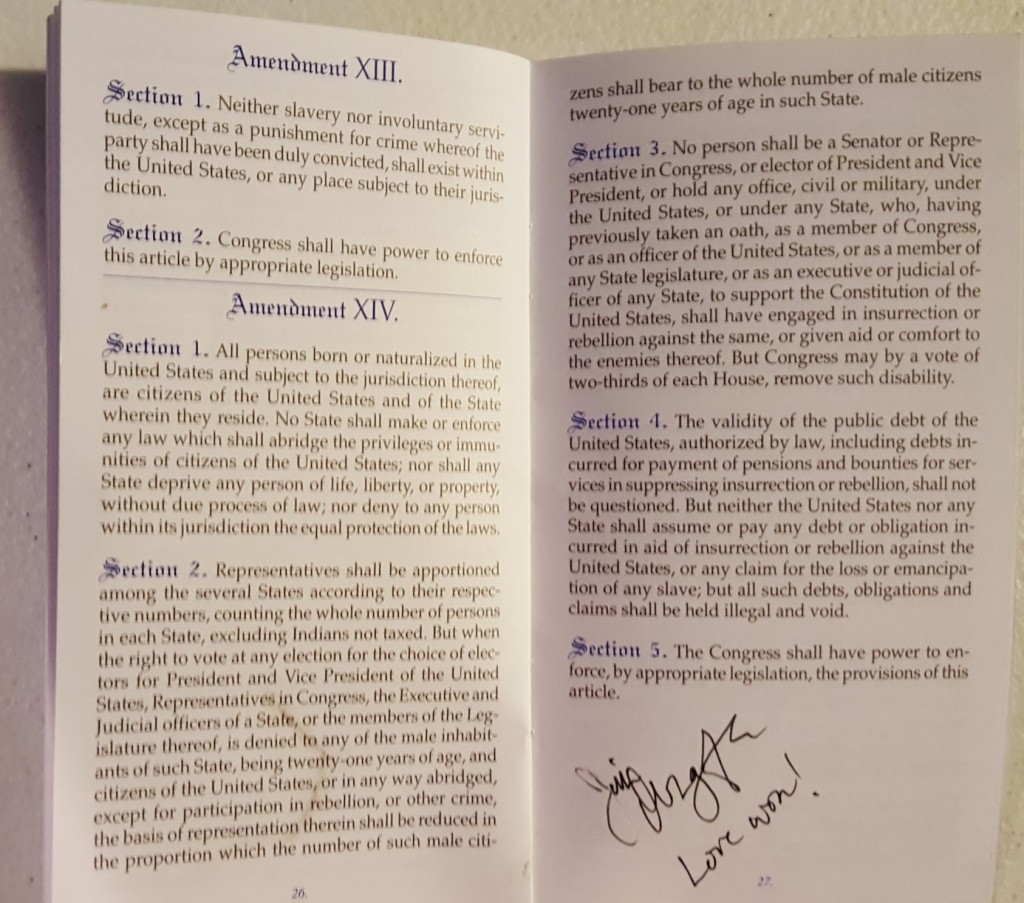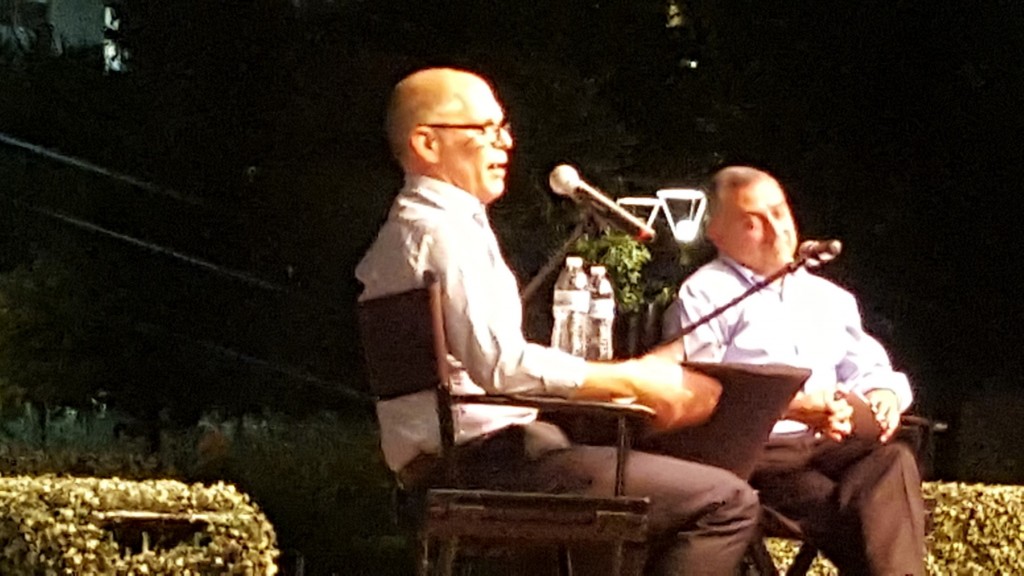On Tuesday, 10/27/15 Jim Obergefell and Eric Alva appeared at an event in Houston to discuss LGBT rights. Alva, whose name is probably less familiar, was the first Marine who was seriously injured in Iraq–he stepped on a land mine within three hours of arriving–and later championed the cause of repealing Don’t Ask, Don’t Tell. Obergefell, whose name you ought to know, was the lead plaintiff in the Supreme Court’s same-sex marriage decision last June. (He was the named party because his cert petition was filed first, and had the lowest docket number). It was a very interesting and engaging event, as the two offered their personal insights about their history and accomplishments.
Before the event, I asked Obergefell if he would sign my pocket constitution. I have a growing collection of Pocket Constitutions signed by various judges, scholars, and others who have some impact on the Constitution. I usually hand over the Constitution, and ask them to sign the inside cover. But, as I approached Obergefell, I opened it up to the 14th Amendment page. Back in 2008–shortly after Heller–I had asked Justice Scalia to sign my Constitution on the page with the 2nd Amendment. (He refused, twice, but I got him to sign it on the third try). Why not, I thought quickly, ask Obergefell to sign the 14th Amendment. It seemed fitting.
I handed him the Constitution, told him I was a law professor, and said I would be teaching his case in a few weeks. He was really friendly, and as he graciously signed it, as we chit-chatted for a few moments. There were a lot of people waiting to see him, so I didn’t keep him much longer. He wrote his name, and below that “Love Won!” It was poetic, both in terms of what, and where he wrote it.
His message was indeed one of love. During the event, he told the heart-wrenching story of how his husband-to-be, John Arthur, was dying from ALS. (Remember the ice bucket challenge?). The couple flew on a medical plane to Maryland, where they were married on the tarmac, and immediately flew back to Ohio. Soon, suit was filed in federal district court in Ohio to modify Arthur’s death certificate, so that Obergefell would be listed as the spouse. The rest is, well, history.
But his inscription took on an even higher salience because of where he wrote it. In the Federalist Society Pocket Constitution I gave him (he didn’t note the irony), there is a blank space below Section 5 of the 14th Amendment. Obergefell, figuratively and literally, added a new section to the Constitution. Justice Kennedy’s majority opinion recognized love itself–not just “equal protection” or “due process of law”–as an interest protected by the Constitution. States that refused to recognize this “dignity” violated the Fourteenth Amendment. At the heart of this constitutional case was love.
With a few small scribbles, perhaps unwittingly, Obergefell aptly summarized everything his case was about from the moral and legal perspectives. I will use this Constitution as a teaching guide when I cover Obergefell in class on 11/9.
Here are a few other pictures from the event.




